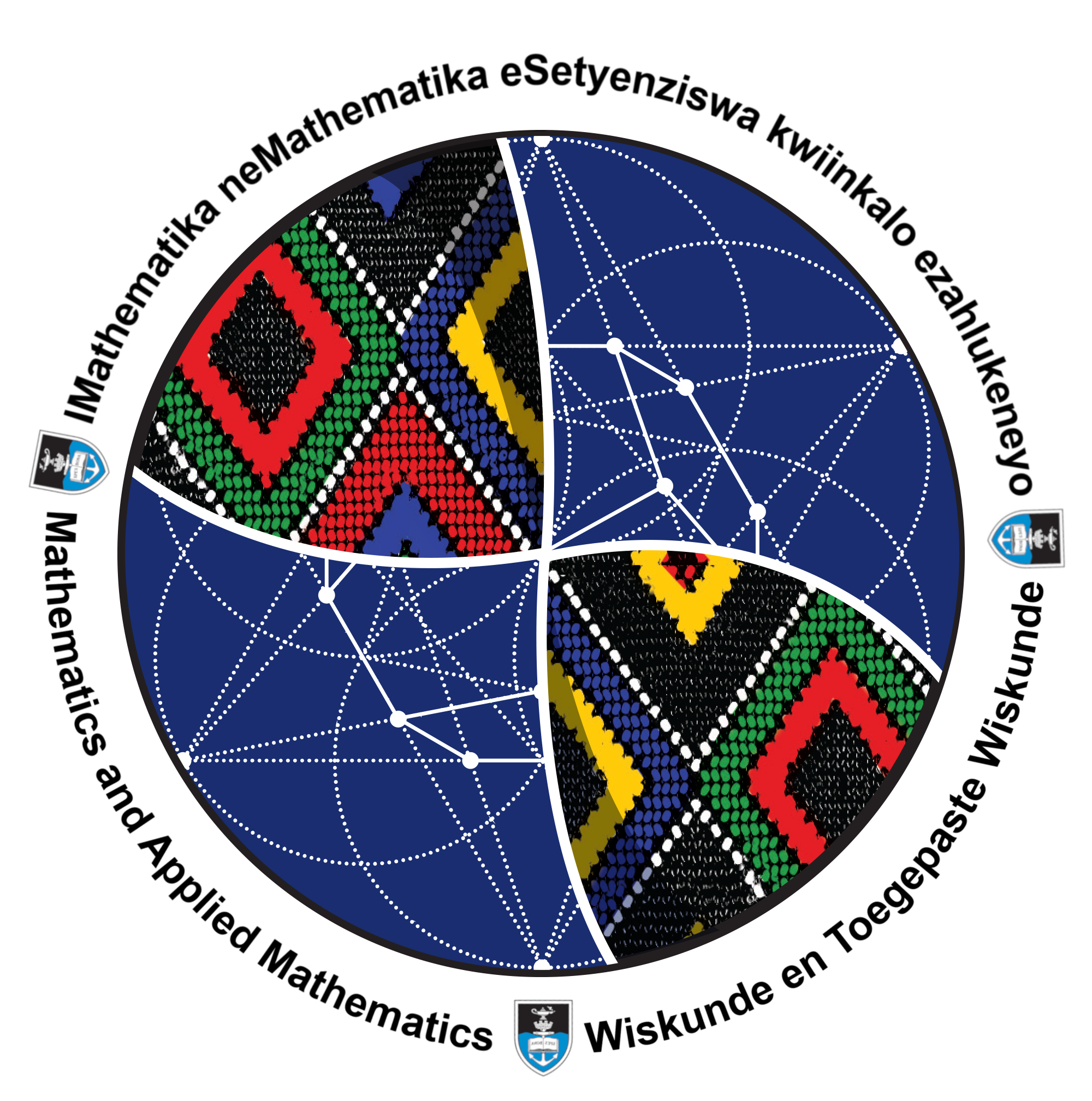Applied mathematics is a hugely varied subject. It covers both the application of known mathematical ideas to understand the world around us, as well as the development of novel mathematical techniques to model systems which we would like to understand. The Department includes applied mathematicians working in diverse areas, including cosmological models of the universe, applying the mathematics of differentiable manifolds to understand space-time, studying non-linear equations to understand waves and pattern formation, and the mathematics of ecology and chaotic systems. To be a good applied mathematician means having a solid grounding in pure mathematics, but the subject tends to focus less on the theory and more on the way that mathematics can be used to understand everything from ripples on the surface of a pond to ripples in the fabric of space-time.
The Department of Mathematics and Applied Mathematics offers a major in Applied Mathematics, consisting of the following courses:
-
MAM1043H: Modelling and Applied Computing
First Year Core Course.
Description: This course is part of the core curriculum for students majoring in Applied Mathematics in their first year. It focuses on modelling and applied computing, integral for building a strong foundation in Applied Mathematics.
Course convenor: Dr Patrick Adams -
MAM1044H: Dynamics
First Year Core Course.
Description: This course, another essential component of the first-year core curriculum for Applied Mathematics majors, delves into the fundamental concepts of dynamics, an important area in applied mathematics.
Course convenor: Dr Beverley Grieshaber -
MAM2046W: Differential equations, nonlinear dynamics, numerical analysis
Description: This is made up of four modules:MAM2040F (MAM2046W 2OD): ORDINARY DIFFERENTIAL EQUATIONS First order equations; existence and uniqueness of solutions. Linear equations of the n-th order; systems of n linear first-order equations. Nonhomogeneous linear equations and systems; variation of parameters; qualitative theory of nonlinear equations; phase plane analysis; externally and parametrically driven oscillators; resonances; application to the theory of nonlinear vibrations. Calculus of variations.
Module leader: Dr Patrick Adams
MAM2041F (MAM2046W 2NA): NUMERICAL ANALYSIS Non-linear equations and rates of convergence. Direct and iterative methods for solving linear systems, pivoting strategies, matrix factorization, norms, conditioning. Solutions to initial value problems including higher order ordinary differential equations. Interpolation and approximation theory, splines, discrete and continuous least squares. Numerical differentiation and integration. Error analysis and control.
Module leader: Dr Bishop Mongwane
MAM2042S (MAM2046W 2ND): NONLINEAR DYNAMICS Fixed points, bifurcations, phase portraits. Conservative and reversible systems. Index theory, Poincáre-Bendixson theorem, Liénard systems, relaxation oscillators. Hopf bifurcations, quasiperiodicity and Poincaré maps. Applications. Chaos on a strange attractor, Lorentz map, logistic map, Hénon map, Lyapunov exponents. Fractals.
Module leader: Prof Jonathan Shock
MAM2043S (MAM2046W 2BP): BOUNDARY-VALUE PROBLEMS Boundary-value problems, Sturm-Liouville problems, Green's function. Variational calculus, applications to Lagrangean and Hamiltonian mechanics. Diffusion, Laplace's and wave equation. Solution by separation of variables.
Module leader: Prof Bob Osano - MAM3040W: Methods of Mathematical Physics, Advanced Numerical Methods, General Relativity and Cosmology, Fluid Dynamics
Description: This is made up of five modules:
3MP: METHODS OF MATHEMATICAL PHYSICS
Fourier-transform solution of linear PDEs on the line. Long-term asymptotic behaviour: methods of Laplace, stationary phase, steepest descents. Nonlinear waves: Riemann invariants. Effect of dissipation; Cole-Hopf transform for the Burgers equation; travelling fronts for the KPP equation. Effect of dispersion: KdV, sine-Gordon equation. Elliptic integrals, elliptic functions; cnoidal waves, solitons. Multisoliton solutions: Hirota method, Baecklund transformations.
Module leader: Dr Patrick Adams
3CV: METHODS OF FUNCTIONS OF COMPLEX VARIABLES
Complex calculus, calculus of residues, special functions, applications to physics.
Module leader: Prof Igor Barashenkov
3AN: ADVANCED NUMERICAL METHODS
Advanced methods for ODEs, boundary value problems, differential eigenvalue problems. Numerical solution of PDEs by methods of finite differences, finite elements and spectral methods.
Module leader: Dr Nora Alexeeva
3GR: INTRODUCTION TO GENERAL RELATIVITY
This course introduces special relativity, taught in a blended learning fashion (online lectures and tutorials) and general relativity including tensors, the metric tensor, symmetries, curvature, Einstein's field equations and solutions of Minkowski space and Black Holes.
Module leader: Dr Bishop Mongwane
3FD: FLUID DYNAMICS
Application, description of fluids, equations of fluid flow for simple fluids, analytical techniques.
Module leader: Prof Arnaud Malan
Further details can be found in the Science Faculty Handbook.
Students who complete a degree with a major in Applied Mathematics with a sufficiently strong academic record may apply for entry to the Department’s Honours Program.
